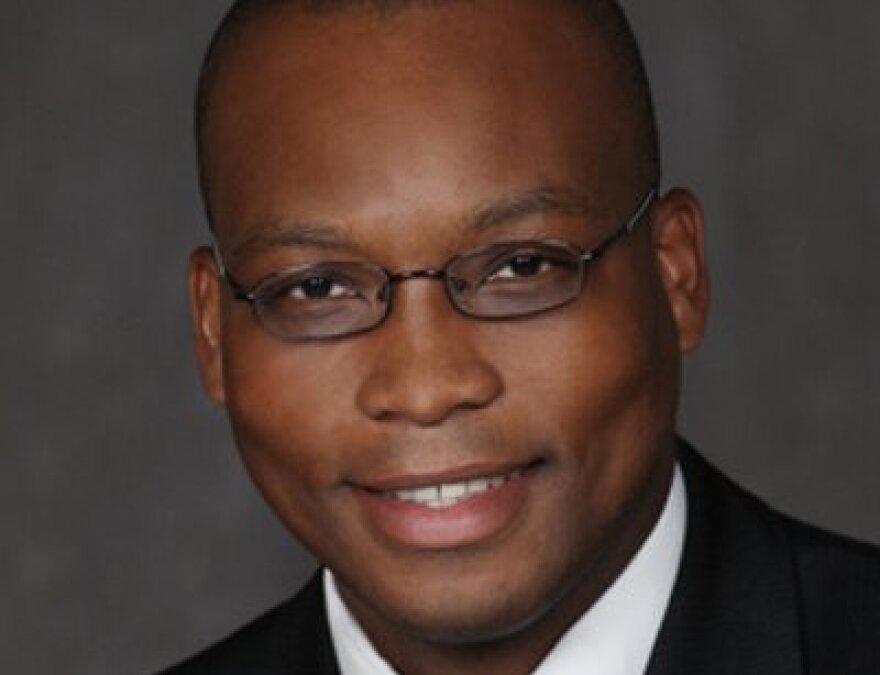"If you're a full time student, about $2,400 a year."
"Roughly, $3,400 a semester."
"All in, it's about $50,000."
That’s just the range of tuition across three schools in South Florida — Broward College, Florida International University and the University of Miami — as described by their leaders.
The costs highlight the spectrum of higher education in South Florida — a region with one of the largest college student populations among American metropolitan areas. More than 350,000 people are enrolled in at least one college-level course here. And one out of three of them are taking classes at one of these three institutions.
Eleven cents of every borrowed dollar by Americans has been borrowed to pay for college costs. It is more than any other kind of debt, except for the money borrowed to buy a home. It is the largest share of debt Americans are having a tough time paying off. Payments on eleven percent of student loans are more than three months late, according to the latest data from the Federal Reserve Bank of New York. And the deliquency rate may be understated because student loan payments can be deferred for up to six months after leaving school.
The rising cost of a degree and student debt have become central issues in the 2020 election. No fewer than nine Democrats running for president have policy positions on college student debt. And it's also a hot topic for local higher education leaders.

"Pretty much out of control" is how FIU President Mark Rosenberg describes the environment for college costs. "I agree with the assessment that we've got to do a lot better at containing tuition costs."
FIU’s tuition, like Broward College and other state colleges and universities, is limited by state regulations, but the costs to attract top professors and other operational costs aren’t.
"The major drivers of cost tend to be faculty salaries, staff salaries, (and) presidential salaries," said Rosenberg.
"A number of complex service industries do not realize economies of scale like mass production at factories," said University of Miami President Julio Frenk. "You cannot hire a fraction of a professor."
As a private university, UM has more control over what it charges students, but it doesn’t make the school immune from regulations. Frenk points to those rules as another driver of college costs.

"We live, and rightly so, in a highly regulated environment. Those regulatory constraints, many of which I totally endorse like Title IX considerations, compliance considerations...require personnel experts who are not directly in the teaching or research part of our mission, but are enabling that. And that adds to costs."
Another driver? Expensive cutting edge research which Frenk said adds value and a competitive advantage. "Our students want to come to a university where the textbooks are being written not just read."
Browad College President Gregory Haile calls college expenses "very dynamic."
"You have to look at what the return on that investment is," said Haile, referring to employment and income opportunities after graduation.
Federal Pell Grants are an important source of tuition for thousands of students in South Florida. At FIU, 23,000 students receive the grant money, which tops at this year at almost $6,200. The grants represent $180 million for the university. Rosenberg estimates more than $300 million in Pell Grant money comes into South Florida colleges and universities. "Pell Grants are critical for our community," he said.

At Broward College, three-quarters of the students receive financial aid, most of it in the form of grants. "We have very few of our graduates who have debt upon graduation," said Broward College President Haile. "We want to make sure that when our students do graduate, they're not laden with debt that compromises their ability to start a family, or buy a home, or buy a car, or whatever it may be to satisfy the needs that they have."
The same proportion of UM first-time freshmen also receive aid — 74 percent. That's below the national average at private colleges and universities. In the last school year, almost 90 percent of freshmen received financial aid from their schools according to the National Association of College and University Business Officers.
"We are very concerned with access," said UM President Frenk. "We are concerned with excellence, but excellence without access deepens social inequality because it limits the opportunities for those who don't have access."
Few UM pay the $50,000-a-year sticker price. The average discount rate was 34 percent less, according to the university.
Politicizing Student Debt
Democratic presidential hopefuls Bernie Sanders, Elizabeth Warren and Beto O'Rourke have proposed eliminating at least some of the $1.5 trillion in accumulated student loan debt. Some have called for "free tuition" through a combition of taxes and cost sharing between state and federal governments.
Businessman Andrew Yang promises to ask schools to reduce or eliminate the debt of students who don’t graduate, explore what he calls a blanket partial reduction in the loan principle, and change bankruptcy laws to allow student debts to be erased. Former Housing and Urban Development Secretary Julián Castro wants to delay student loan payments until the borrower earns a certain income. He also wants to get rid of tuition at public colleges and universities, and have state and federal governments share the cost. Cory Booker isn’t as aggressive. His platform calls for free tuition at public community and vocational colleges. Former Vice President Joe Biden hasn’t released any specific plan other than helping teachers pay off their student loans.
Frenk, at UM, thinks the issue of student loans has been "politicized, but I would not use that argument to dismiss" the challenge.
"Education is an anvil around which social forces tend to circle and to hammer at," said FIU President Rosenberg.



